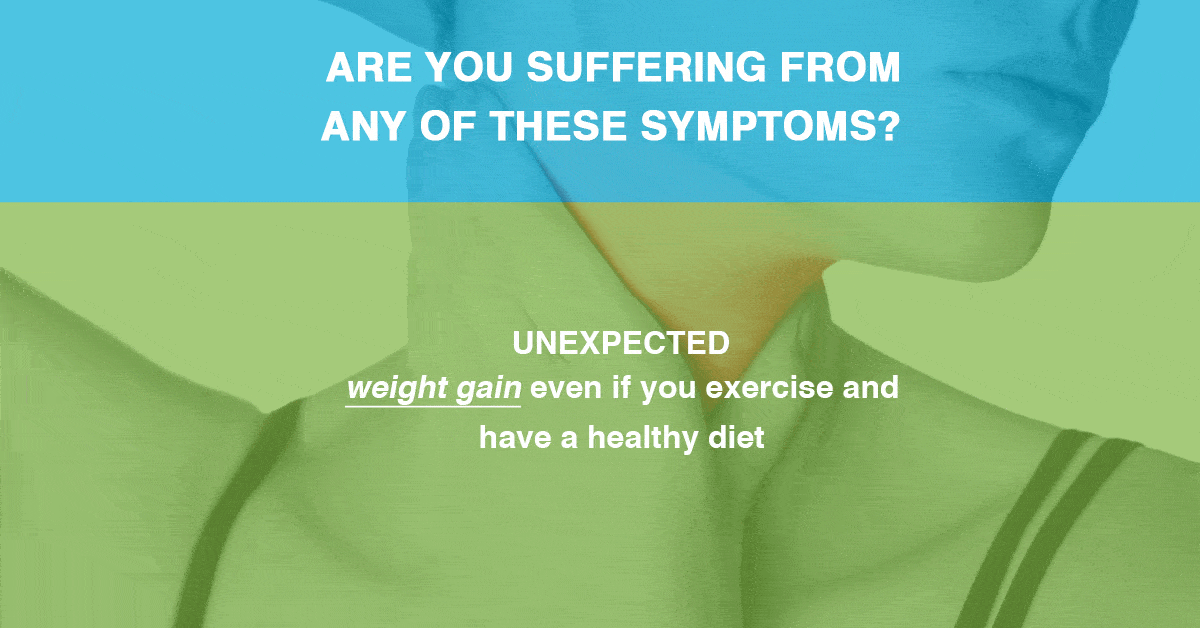 Is your energy acting up and you’re not sure why? Are you suffering from weight gain, sleeplessness, unexplained inflammation, and can’t pinpoint the cause? Welcome to the world of Hashimoto’s disease. The facts about Hashimoto’s disease show how this condition is more commonly prevalent than what people think.
Is your energy acting up and you’re not sure why? Are you suffering from weight gain, sleeplessness, unexplained inflammation, and can’t pinpoint the cause? Welcome to the world of Hashimoto’s disease. The facts about Hashimoto’s disease show how this condition is more commonly prevalent than what people think.
Hashimoto’s is an autoimmune disorder that can cause hypothyroidism, or having an underactive thyroid. With this disease, your immune system attacks your thyroid, meaning the thyroid becomes damaged and can’t make enough thyroid hormones. The thyroid is a small, butterfly-shaped gland in the front of your neck, and thyroid hormones control how your body uses energy, so they affect nearly every organ in your body—even the way your heart beats.
Without enough thyroid hormones, many of your body’s functions slow down. Other names for Hashimoto’s disease are chronic lymphocytic thyroiditis or autoimmune thyroiditis.
Learn About Thyroid Treatments
First off, how common is Hashimoto’s disease? Through studies, research, and evidence, it’s been proven that the condition is the most common cause of hypothyroidism in the United States, and affects about five people out of every 100. The disease is at least eight times more common in women than in men, and although Hashimoto’s may occur in teens or young women, it more often appears between ages 40 and 60. Your chance of developing Hashimoto’s disease increases if other family members have been afflicted by the disease.
Also, you are more likely to develop Hashimoto’s disease if you have other autoimmune disorders, therefore conditions linked to Hashimoto’s include the following:
Many people with Hashimoto’s disease experience no symptoms at first, however as the disease slowly progresses, the thyroid usually gets larger and may cause the front of the neck to appear swollen. The enlarged thyroid, commonly referred to as a goiter, may create a feeling of fullness in your throat, though it’s usually not painful. After many years, or even decades, damage to the thyroid causes it to shrink and the goiter to disappear.
The hypothyroidism of Hashimoto’s disease often is mild and without symptoms—especially early in the disease. But as hypothyroidism progresses, you may have one or more of the following symptoms:
It’s not immediately apparent why some people develop autoimmune disorders such as Hashimoto’s disease, while others are never affected. These disorders could result from a combination of genes and outside triggers, such as a virus or major stressful events. In Hashimoto’s disease, your immune system makes antibodies that attack the thyroid gland.
A large number of white blood cells called lymphocytes–which are part of the immune system–build up in the thyroid, and make the antibodies that start the autoimmune process. Your doctor is able to detect this through a few blood tests to determine whether you have hypothyroidism, and will possibly order more blood tests to look for antithyroid antibodies known as thyroperoxidase antibodies (TPO), which almost all people with Hashimoto’s disease have.
If your doctor suspects Hashimoto’s disease but you don’t have antibodies in your blood, you may have an ultrasound taken of your thyroid. The images that the ultrasound makes can show the size of your thyroid and other features of the disease, and the ultrasound also has the ability to rule out other causes of an enlarged thyroid, such as thyroid nodules—small lumps in the thyroid gland.
Treatment usually depends on whether your thyroid is damaged enough to cause hypothyroidism, and if it isn’t present, your doctor may choose to simply monitor you to see if your disease gets worse. Hypothyroidism is treated by replacing the hormone that your own thyroid can no longer make, followed by a blood test about 6 to 8 weeks after you begin taking the thyroid hormone and need to adjust your dose accordingly. Your hypothyroidism can be completely controlled with thyroid hormone medication, as long as you take the prescribed dose as instructed.
Learn About Thyroid Treatments
The thyroid gland uses iodine, a mineral in some foods, to make thyroid hormones. However, people with Hashimoto’s disease or other types of autoimmune thyroid disorders may be sensitive to harmful side effects from iodine. Eating foods that have large amounts of iodine—such as kelp, dulse, or other kinds of seaweed—may cause hypothyroidism or make it worse. Taking iodine supplements can have the same effect.
Talk with your doctor about what foods you should limit or avoid. Let them know if you take iodine supplements, and also share information about any cough syrups you take, because they may contain iodine.
Hashimoto’s disease needs to be addressed the instant your body undergoes changes as described above. Talk with your doctor about the need for possibly thyroid medication, and above all, follow a healthy and balanced diet that includes a wide range of foods, and avoids foods containing iodine. You owe it to yourself to maintain a well-being free of stress, inflammation, lack of energy and sleep, and any potential thyroid gland harm through unavoidable means.
Learn About Thyroid Treatments